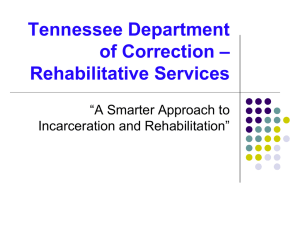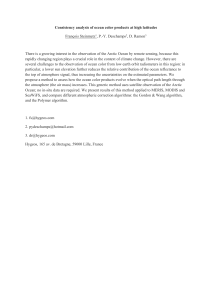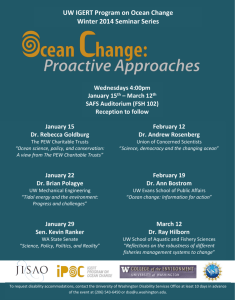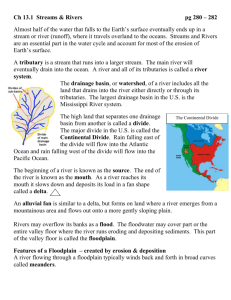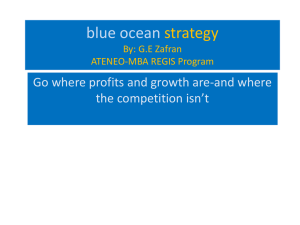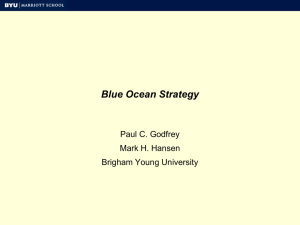PROJECT SUMMARY
advertisement
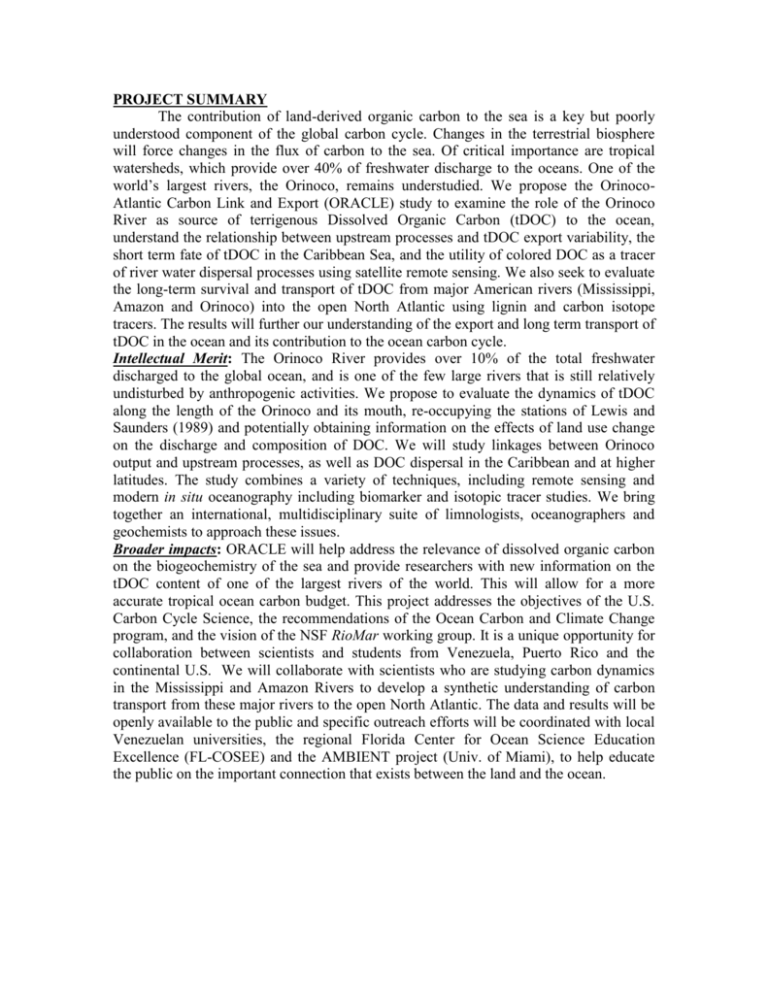
PROJECT SUMMARY The contribution of land-derived organic carbon to the sea is a key but poorly understood component of the global carbon cycle. Changes in the terrestrial biosphere will force changes in the flux of carbon to the sea. Of critical importance are tropical watersheds, which provide over 40% of freshwater discharge to the oceans. One of the world’s largest rivers, the Orinoco, remains understudied. We propose the OrinocoAtlantic Carbon Link and Export (ORACLE) study to examine the role of the Orinoco River as source of terrigenous Dissolved Organic Carbon (tDOC) to the ocean, understand the relationship between upstream processes and tDOC export variability, the short term fate of tDOC in the Caribbean Sea, and the utility of colored DOC as a tracer of river water dispersal processes using satellite remote sensing. We also seek to evaluate the long-term survival and transport of tDOC from major American rivers (Mississippi, Amazon and Orinoco) into the open North Atlantic using lignin and carbon isotope tracers. The results will further our understanding of the export and long term transport of tDOC in the ocean and its contribution to the ocean carbon cycle. Intellectual Merit: The Orinoco River provides over 10% of the total freshwater discharged to the global ocean, and is one of the few large rivers that is still relatively undisturbed by anthropogenic activities. We propose to evaluate the dynamics of tDOC along the length of the Orinoco and its mouth, re-occupying the stations of Lewis and Saunders (1989) and potentially obtaining information on the effects of land use change on the discharge and composition of DOC. We will study linkages between Orinoco output and upstream processes, as well as DOC dispersal in the Caribbean and at higher latitudes. The study combines a variety of techniques, including remote sensing and modern in situ oceanography including biomarker and isotopic tracer studies. We bring together an international, multidisciplinary suite of limnologists, oceanographers and geochemists to approach these issues. Broader impacts: ORACLE will help address the relevance of dissolved organic carbon on the biogeochemistry of the sea and provide researchers with new information on the tDOC content of one of the largest rivers of the world. This will allow for a more accurate tropical ocean carbon budget. This project addresses the objectives of the U.S. Carbon Cycle Science, the recommendations of the Ocean Carbon and Climate Change program, and the vision of the NSF RioMar working group. It is a unique opportunity for collaboration between scientists and students from Venezuela, Puerto Rico and the continental U.S. We will collaborate with scientists who are studying carbon dynamics in the Mississippi and Amazon Rivers to develop a synthetic understanding of carbon transport from these major rivers to the open North Atlantic. The data and results will be openly available to the public and specific outreach efforts will be coordinated with local Venezuelan universities, the regional Florida Center for Ocean Science Education Excellence (FL-COSEE) and the AMBIENT project (Univ. of Miami), to help educate the public on the important connection that exists between the land and the ocean.
